Organizational Behavior Draws Upon The Fields Of
Organizational Behavior Draws Upon The Fields Of - This chapter examines organizational behavior from the viewpoints of professionals and researchers. Web organizational behavior (ob) is defined as the systematic study and application of knowledge about how individuals and groups act within the organizations where they work. Web the organizational behavior major draws upon knowledge from psychology, sociology, management theory, and related fields. Web organizational behavior draws upon which of the following fields? By understanding people, you can better understand an organization. Although it draws most heavily from the psychological and sociological sciences, it also looks to other scientific fields of study for insights. Sociology, cognitive psychology, and behavioral economics which of the following is an important organizational behavior issue for health care managers? Web organizational behavior (ob) takes a systematic approach to understand how individuals and groups behave in organizations as well as the relationship between people and organizations. Web organizational behaviour (ob) is the study of how people think, feel, and behave individually or in groups within organizations. Sociology, cognitive psychology, and neuroscience. Although it draws most heavily from the psychological and sociological sciences, it also looks to other scientific fields of study for insights. It addresses topics including communication and motivation, team dynamics, leadership, the role of politics and power, conflict and negotiation, organizational culture, and change management. Leadership models influence (high task/relationship) directional (high task/ low relationship) collaboration (low task/ high. Web organizational behavior (ob) is a discipline of social science that seeks explanations for human behavior in organizations. (2016), we define a concept as “cognitive symbols (or abstract terms) that specify the features, attributes, or. Web organizational behavior draws upon the fields of: Analyzing the external environment's effect on the organization and its. Though it is largely used within the. Organizational behavior is a subset of organizational theory which. In order to analyze the area of leadership and the broader field of organizational behavior for trends in the study of behaviors, we took two approaches. Web organizational behavior is embedded in human resources such as employee retention, engagement, training, and culture. This chapter examines organizational behavior from the viewpoints of. Ob draws on core disciplines such as psychology, sociology, anthropology, economics, communication, and law to create and investigate multilevel explanations of why people enga. Ob draws upon fields such as psychology, management, sociology, etc. Web organizational behavior (ob) is the study of how individuals, groups, and organizations interact and influence one another. Web organizational behavior draws upon which of the. Web evidence of the absence of behavioral evidence in leadership and organizational behavior. Web organizational behaviour (ob) is the study of how people think, feel, and behave individually or in groups within organizations. The findings of ob studies have formed many workplace principles to encourage more effective human resources (hr) and business operations. Three basic levels of analysis in ob. Web organizational behavior aims to learn how an organization operates through the behaviors of its members. In order to analyze the area of leadership and the broader field of organizational behavior for trends in the study of behaviors, we took two approaches. Sociology, cognitive psychology, and neuroscience. It addresses topics including communication and motivation, team dynamics, leadership, the role of. Leadership models influence (high task/relationship) directional (high task/ low relationship) collaboration (low task/ high relationship) delegation (low task/relationship) leadership domains Web what is organizational behavior? Sociology, cognitive psychology, and behavioral economics which of the following is not identified as a category of systematic biases that limit one's ability to accurately think about a situation? Web “organizational behavior is a relatively. Web organizational behavior aims to learn how an organization operates through the behaviors of its members. Ob draws upon fields such as psychology, management, sociology, etc. Work behaviors can be studied at these three levels in an organization: Three basic levels of analysis in ob are individual, group, and organizational. Organizational behavior is a subset of organizational theory which. The findings of ob studies have formed many workplace principles to encourage more effective human resources (hr) and business operations. Web a cursory review of organizational behavior textbooks commonly used in undergraduate and graduate classes shows that these texts almost always define organizational behavior as a field,. Web organizational behavior (ob) is the study of human behavior in organizational settings,. Web organizational behavior aims to learn how an organization operates through the behaviors of its members. Work behaviors can be studied at these three levels in an organization: Web what is organizational behavior? Sociology, cognitive psychology, and behavioral economics which of the following is not identified as a category of systematic biases that limit one's ability to accurately think about. Web “organizational behavior is a relatively new, interdisciplinary field of study. Organizational behavior researchers study the behavior of individuals primarily in their organizational roles. Web organizational behavior (ob) takes a systematic approach to understand how individuals and groups behave in organizations as well as the relationship between people and organizations. This chapter examines organizational behavior from the viewpoints of professionals and researchers. Web organizational behaviour (ob) is the study of how people think, feel, and behave individually or in groups within organizations. Web in this article, six central topics are identified and discussed: Sociology, cognitive psychology, and neuroscience. Web what is organizational behavior? Web organizational behavior is the field of study that draws on theory, methods, and principles from various disciplines to learn about individual perceptions, values, learning capacities, and actions while working in groups and within the total organization; Web evidence of the absence of behavioral evidence in leadership and organizational behavior. Three basic levels of analysis in ob are individual, group, and organizational. Web organizational behavior draws upon which of the following fields? Its theories and practices draw from related fields like anthropology, political science, and sociology and how they apply to a business environment. Organizational behavior is the study of how people interact with others in an organization, such as a company. Organizational behavior is the study of behavior dynamics between individuals and teams. Web organizational behavior is embedded in human resources such as employee retention, engagement, training, and culture.
Organizational Behavior Explained Definition, Importance, Nature, Model
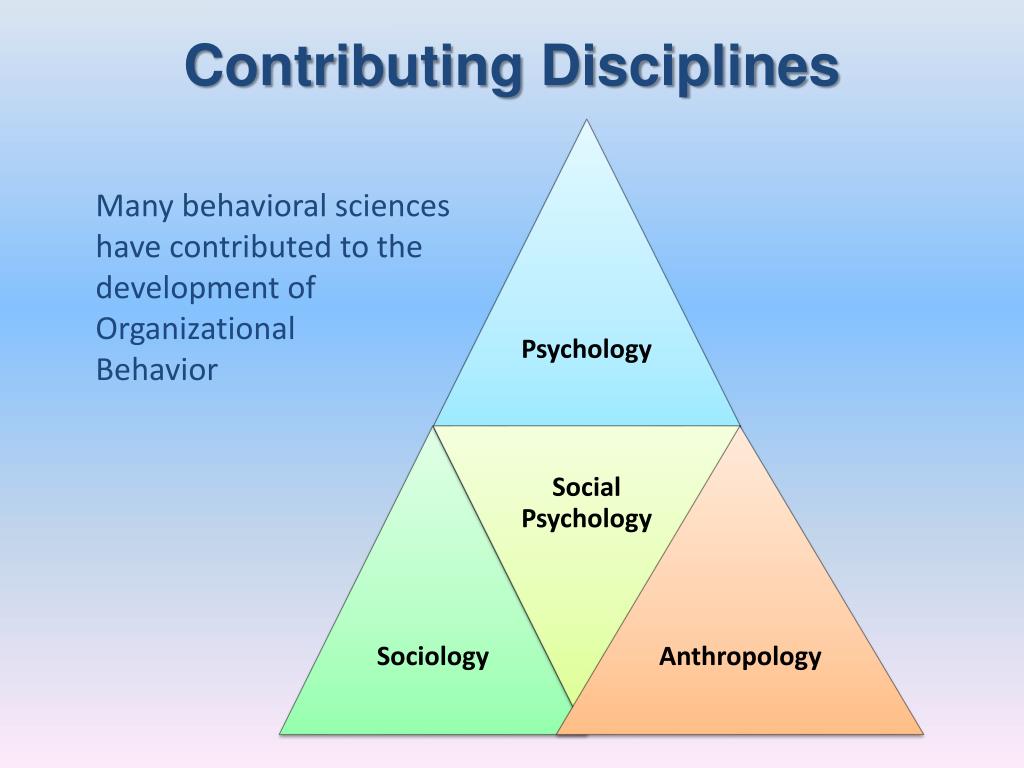
Ppt Organizational Behavior A Basic Concepts Powerpoint Presentation 392
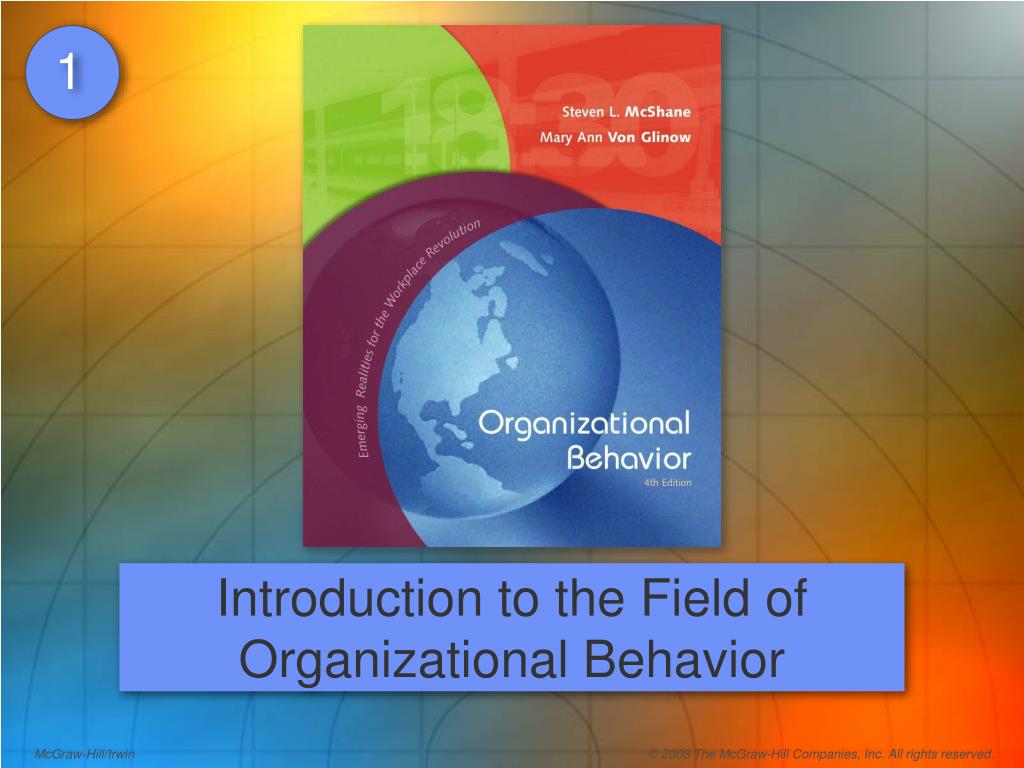
PPT Introduction to the Field of Organizational Behavior PowerPoint
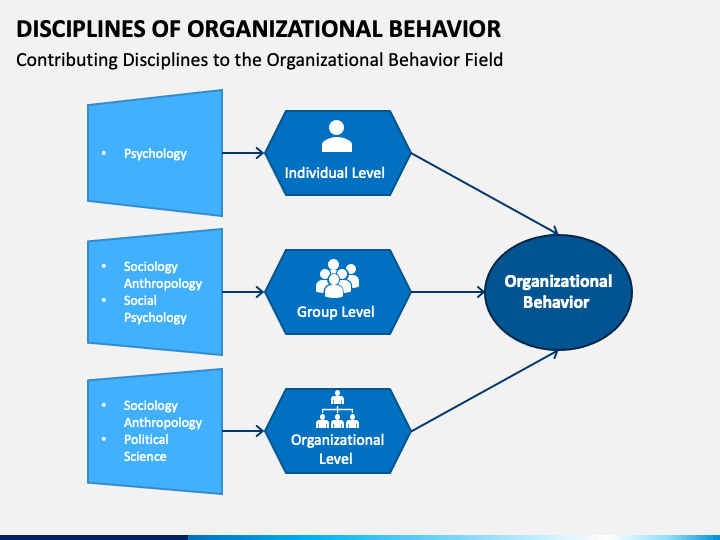
Disciplines of Organizational Behavior PowerPoint Template PPT Slides

What Is Organizational Behavior online presentation

4 Approaches To Organizational Behavior Studies Explained
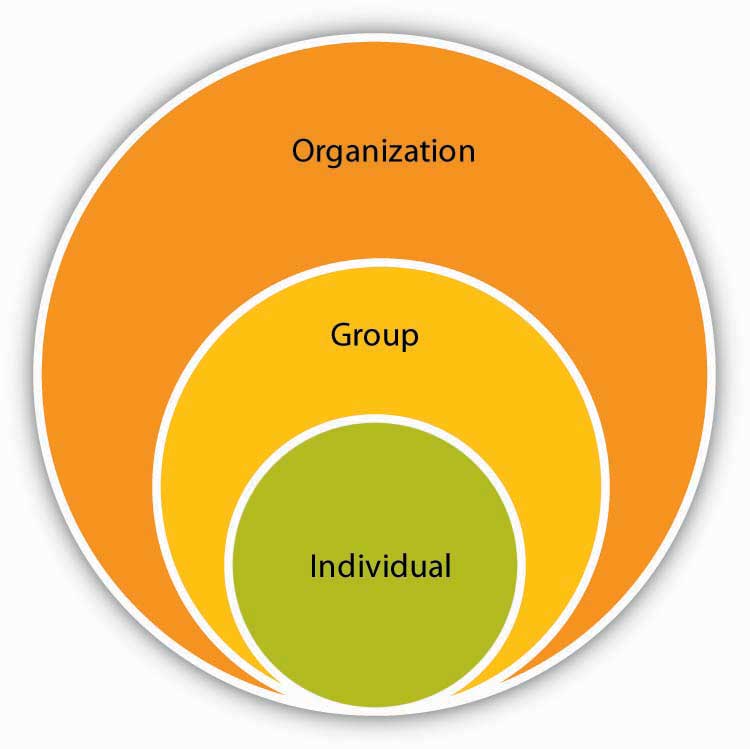
1.2 Understanding Organizational Behavior Organizational Behavior
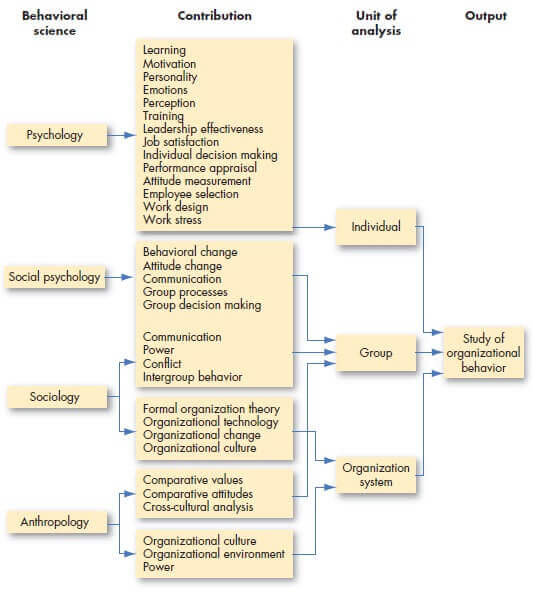
What Is Organizational Behavior? Model, Theories, Scope

6 Contributing Disciplines to Organization Behavior Field

1.15 What is Organizational Behavior? Business LibreTexts
Sociology, Cognitive Psychology, And Behavioral Economics Which Of The Following Is Not Identified As A Category Of Systematic Biases That Limit One's Ability To Accurately Think About A Situation?
In Order To Analyze The Area Of Leadership And The Broader Field Of Organizational Behavior For Trends In The Study Of Behaviors, We Took Two Approaches.
(2) Attitudes And Job Satisfaction;
Drawing Upon Podsakoff Et Al.
Related Post: